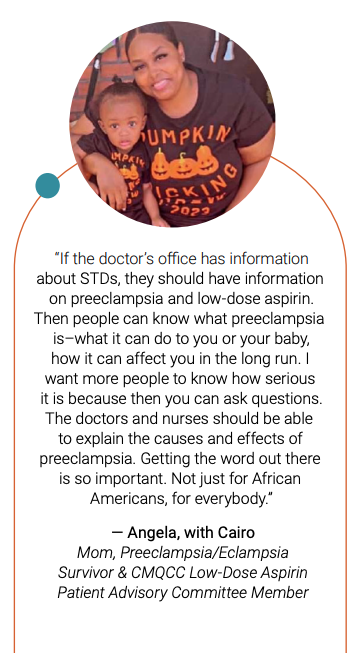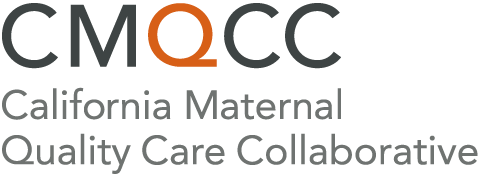For those in California, please contact your program manager or info@cmqcc.org with any questions.
Collaborating to Make California an Ideal Place to Have a Baby
California Perinatal Quality Care Collaborative (CPQCC) and California Maternal Quality Care Collaborative (CMQCC) cultivate a collaborative community of perinatal healthcare providers and multi-stakeholder partners, united in the mission to continually enhance care for mothers, babies, and families. We achieve this by transforming data into action, fostering strategic partnerships, advancing education, and, above all, driving rigorous collaborative quality improvement.
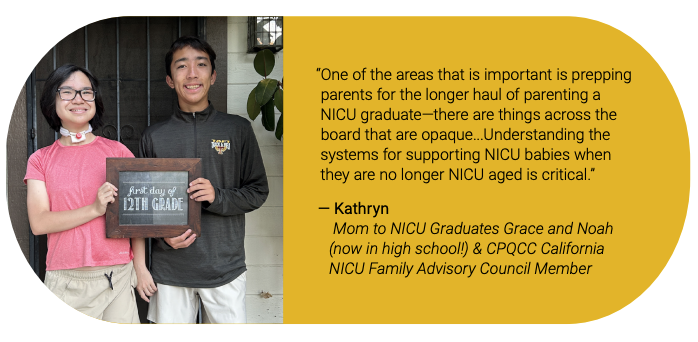
The Role of Health Equity
CPQCC and CMQCC are dedicated to improving perinatal care through health equity, which involves partnerships between hospitals and communities, and elevating patient voices that represent all Californians, especially those disproportionately impacted by poor health outcomes. Health equity is central to our strategy as we assist our member hospitals in enhancing their ability to provide respectful care, bridging gaps in both care and quality, promoting the adoption of effective care models, and designing impactful interventions. We carry out our work using a blend of data-driven, evidence-based, and community-engaged approaches that offer us a profound understanding of barriers to care and the most effective methods to address them. CPQCC and CMQCC are committed to continually and intentionally tackling inequitable practices to improve the health and well-being of all families in California.
The Value of Data
High-quality data are the foundation of evidence-based quality improvement. CPQCC’s NICU and HRIF Databases and CMQCC’s Maternal Data Center allow members to analyze and stratify data across a variety of patient characteristics. The data dashboards and robust member support create easy-to-use, low-burden tools for healthcare teams to monitor their performance over time and compare themselves to their peers.
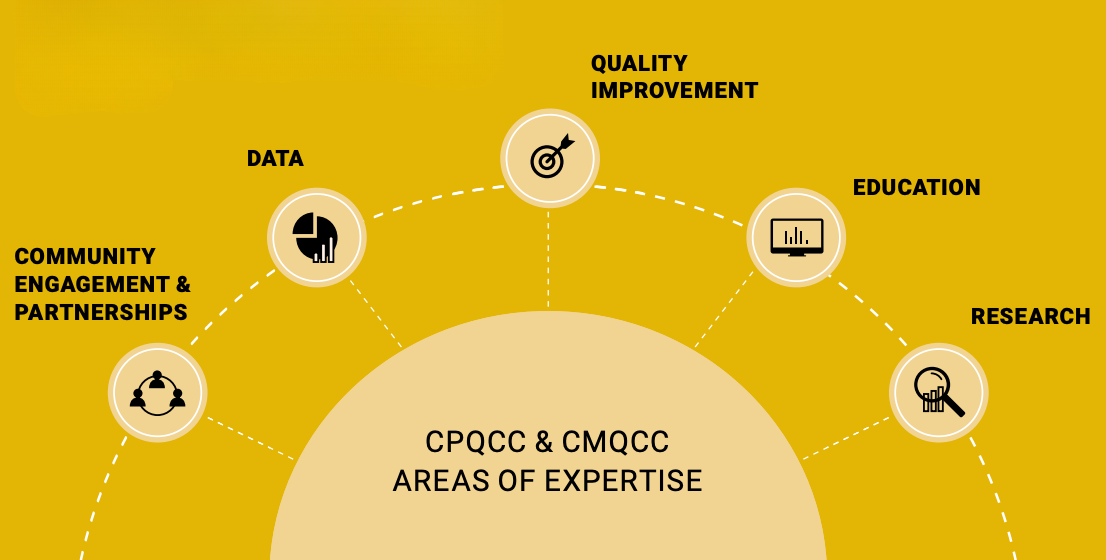
CMQCC currently leads three patient advisory programs:
-
Health Equity Patient Advisory Program
As part of the Learning Initiative, CMQCC established the Health Equity Advisory Council (HEAC) to increase community and patient awareness of existing disparities in cesarean delivery rates and the unique drivers contributing to cesarean delivery. Council members bring a wealth of community expertise and a variety of lived experiences. The Council is funded by a five-year grant (2022-2027) from the CDC.
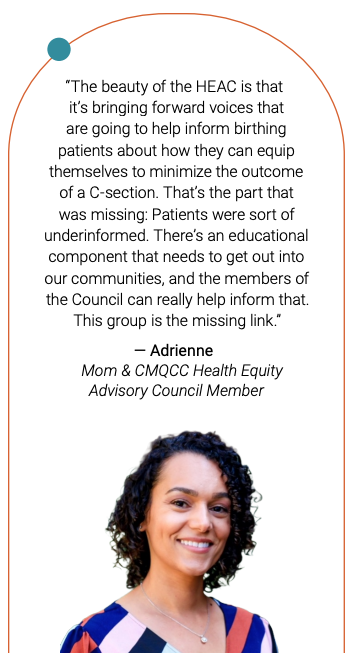
-
Low-Dose Aspirin Patient Advisory Council
The 2023-2024 Low-Dose Aspirin Patient Advisory Committee (LDA PAC) convened individuals with lived experience of antepartum/postpartum preeclampsia and a commitment to reducing health inequities to inform outpatient, inpatient, and community-specific program and project strategies. The LDA PAC kept patient voices front and center in joint conference presentations and office hours for healthcare teams, while also guiding the development of patient education materials to ensure critical health information was stated clearly and respectfully, and materials were patient centered. Similarly, the LDA PAC’s role in developing clinical training videos provided a crucial perspective, often missed, that informed guidance on respectful approaches to patient discussions about health disparities.
- Low-Dose Aspirin Faculty Advisory Council
The Low-Dose Aspirin Faculty Advisory Council (LDA FAC) is a group of dedicated professionals and community advocates working together to improve the health of pregnant individuals at risk for preeclampsia. The FAC includes a wide range of experts, including those with lived experience, healthcare providers, researchers, and public health leaders.
The council’s main goal is to support hospitals, clinics, and community-based organizations in promoting the safe and effective use of daily low-dose aspirin (LDA), which is a simple, proven strategy to help reduce the risk of preeclampsia during pregnancy.
Similar to the LDA Patient Advisory Committee (PAC), the FAC serves as a group of key stakeholders to inform the LDA Initiative’s programming and content development. Their insight helps ensure that the initiative remains community-centered, fully representative, and grounded in the latest research.
As part of the LDA Initiative, the FAC helps:
- Guide the work of the initiative, ensuring that programs and materials are useful, fully representative, and evidence based.
- Support healthcare providers and organizations by sharing expertise and providing mentorship across different regions.
- Build strong partnerships with medical experts and healthcare systems to stay up to date on best practices for LDA use in pregnancy.
The leadership of the FAC plays a key role in promoting healthy pregnancies and reducing the impact of preeclampsia in communities across California.
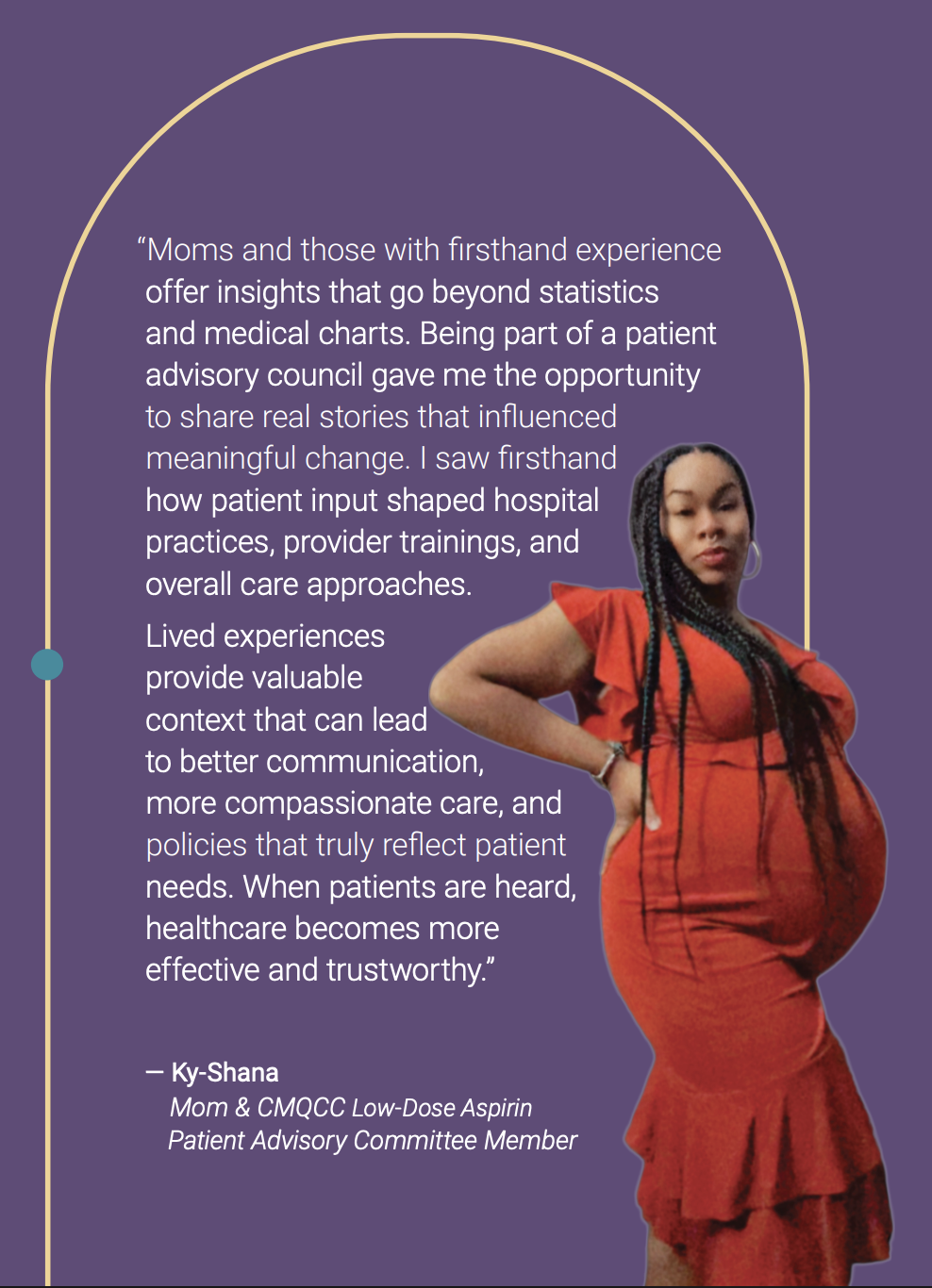
CPQCC California NICU Family Advisory Council
CPQCC’s California NICU Family Advisory Council is comprised of family members who reflect California families and bring valuable lived experience and wisdom from their NICU journeys. Members help transform care within NICUs and connect with high-risk infant follow-up clinics to improve babies’ outcomes, particularly for children who are most likely to have negative outcomes. The Council strives to make a system-wide impact by helping shape NICU projects, with funding from a grant from the Lucile Packard Foundation for Children’s Health.
Preeclampsia & Preterm Birth: Low-Dose Aspirin Initiative
CMQCC, with partnership and funding from March of Dimes, is collaborating with select California hospitals and community-based organizations to promote the use of daily low-dose aspirin for pregnant women who are most likely to be impacted by preeclampsia, a disorder of pregnancy associated with new-onset hypertension. Low-dose aspirin, as recommended by a healthcare provider, is the only known effective solution to prevent preeclampsia and related preterm birth. In 2024, QI outreach spanned hospitals, outpatient clinics, and federally qualified health centers, with a special focus on organizations providing safety net care to Medi-Cal populations and serving low-income patients and high-risk families. The Low-Dose Aspirin Webinar Series attracted healthcare professionals from across California; 50% of U.S. states, including Florida, Illinois, New York, and Texas; and from Indian Health Services.
- Podcast: "Preventing Preterm Birth and Preeclampsia - Office Hours with Dr. Diana Ramos," featuring Dr. David K. Stevenson, professor of pediatrics at Stanford School of Medicine
- CMQCC is grateful to be collaborating on this work alongside many community organizations:
